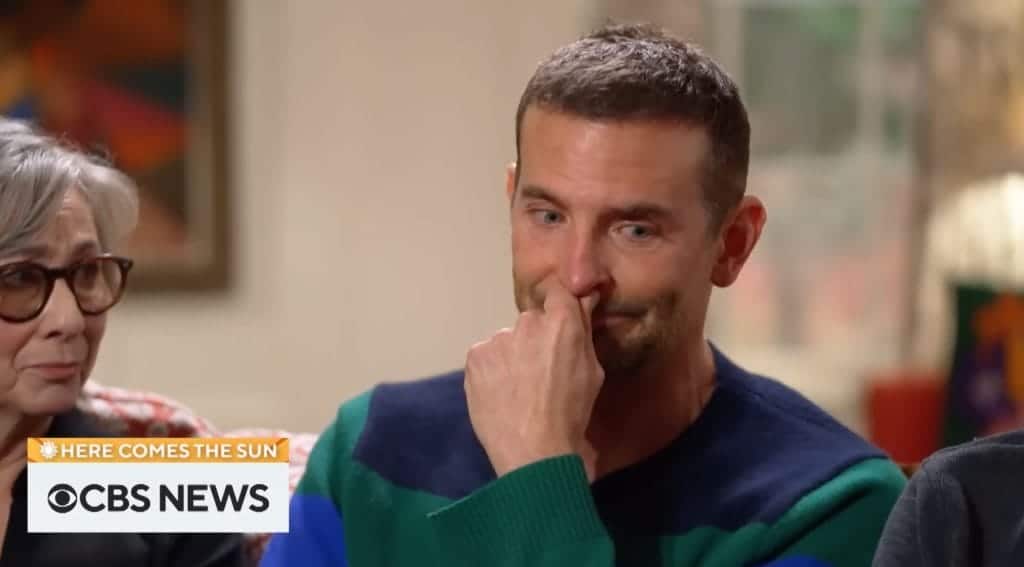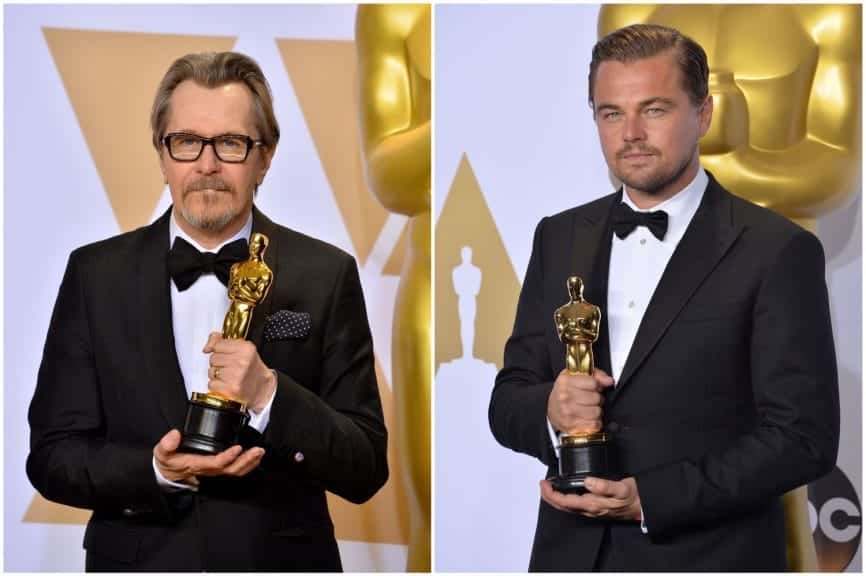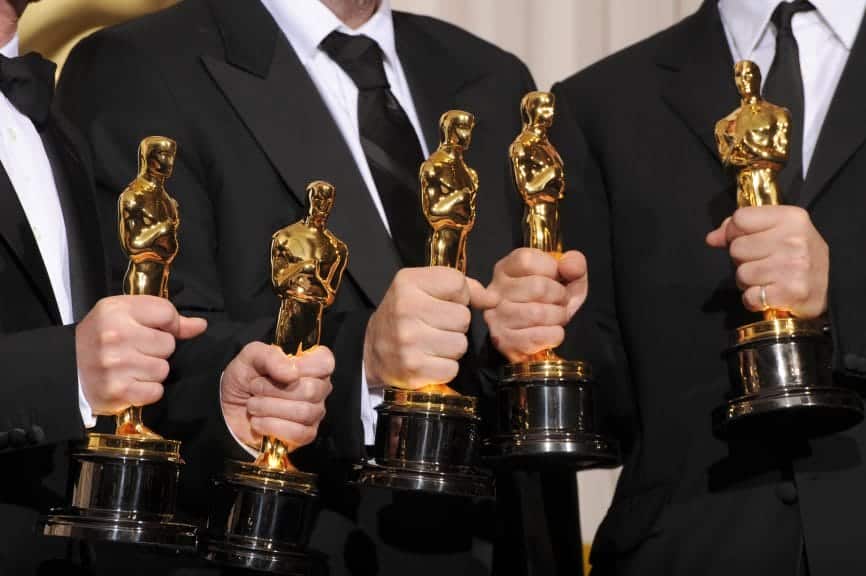How far is too far? Ask Bradley Cooper about his quest for an Oscar.
Last summer, a teaser trailer was released for the biopic Maestro. The film detailed the life of legendary composer and conductor Leonard Bernstein. In the trailer, we saw our first glimpse of Bradley Cooper in the starring role. Not only was Cooper to star, he was also directing, co-writing, and co-producing the film. Alongside Carrey Mulligan, who had already twice been nominated in the Best Actress category and as a biographical movie (usually an Oscar favorite), Maestro and Cooper seemed bound for success.
So when this year’s nominees were announced, it came as no surprise that Maestro was recognized. It received seven nominations, including Best Actor and Actress for Cooper and Mulligan.
This would bring Cooper’s nomination total to 12 from the Academy, including 4 in the Best Actor category. Despite falling short of wins at the Golden Globes, the BAFTAs, and the Screen Actors Guild, the climax of the awards season at the Dolby Theatre was still to come. As we now know, it was not to be for Cooper’s passion project, putting him among the Oscar’s most-nominated people without a win.
With the 2023-24 awards season finished and Cooper not picking up a single award, we must ask why such extreme commitment to the role no longer guarantees the coveted Oscar.
Bradley Cooper and His Oversharing Oscar Campaign
It is a paradox faced yearly by actors like Cooper chasing the Oscar: you must be dedicated but can’t be seen to want it too much. It seemed like a general consensus that, by the release of Maestro last year, Cooper wanted it too much. In an article for Vulture, Nate Jones named Maestro this year’s “Oscar villain.” According to Jones, Cooper ran a campaign where “not since Anne Hathaway has an Oscar contender lost so much goodwill simply by campaigning so hard.”

In a screening and Q&A in New York, Cooper admitted he was “terrified” to portray Bernstein. This wasn’t an outlandish thing to say; in retrospect, it was the most normal quote from Cooper. He outdid himself with “unhinged” tearful comments in front of Bernstein’s children about how much he misses Bernstein, whom he had never met.
In a string of strange revelations, he admitted to showering with his late father as a child and how he didn’t begin to love his daughter until she was eight months old. By the end of the tour, no one was actually talking about the film. People on social media started complaining that everything they learned about Bradley Cooper was “against their will.”
The ridiculousness culminated in the revelation that Cooper spent six years learning to conduct a six-minute sequence.
Why Maestro Didn’t Perform
Rather than marvel at Cooper’s commitment to his craft, The New Yorker dubbed him “this year’s Try-Hard Who Wants an Oscar So Badly That We Should Probably Just Give Him One to Prevent a Psychotic Break.”
This image didn’t falter during the award ceremonies. Countless screenshots were shared to social media, capturing Cooper’s losing face, which he has had more than enough practice at.
Ultimately, the film’s failed awards season came down to two things: Cooper’s excessive commitment and the film’s status as a quintessential “Oscar movie.” This film category includes, in recent memory, Damien Chazelle’s aesthetically pleasing La La Land and Babylon, as well as tired biopics such as Bohemian Rhapsody and Blonde. These films have the highest expectations of Oscar glory, only to fall short on the night.
Who could forget, “They got the wrong envelope!” when La La Land falsely won Best Picture over Moonlight for 2 minutes.
Unfortunately, Cooper’s stylized ode to Bernstein and his immersive method acting meant Maestro fit perfectly within the “Oscar Bait” criteria. This turned critics and audiences sour, dooming it from the start.
A Question For The Method Actors: Why?
Coined in the Golden Age of Hollywood, method acting has a controversial history.
Jim Carrey terrorized the crew as Andy Kaufman on the Man on the Moon set. Dustin Hoffman slapped Meryl Streep off-camera during Kramer vs. Kramer, and Streep later said, “It was overstepping.” Despite this checkered past, the practice has endured. This is likely due to the accolades which it so often ensures.
Whether Gary Oldman smokes 400 cigars as Winston Churchill in The Darkest Hour or Leonardo DiCaprio eats a real raw liver of a bison as Hugh Glass in The Revenant, the method actor is alive – though maybe not well.
Indeed, the fact that Oldman contracted nicotine poisoning on set while DiCaprio ate the liver as a vegan only heightened praise for their commitment. Both went on to win their first Oscars for the roles so who cares, right?

Take Daniel Day-Lewis, a prolific modern-day success story for method acting. Whether he was catching pneumonia after insisting on only wearing period clothes for Gangs of New York or practicing dressmaking for two years for Phantom Thread, Day-Lewis was heralded for his commitment. In fact, he boasts three Best Actor Oscars, holding the record for most wins in the category. As a result, the Lincoln actor became synonymous with the practice.
That is until his early retirement, citing a complicated relationship with method acting as the reason.
In an interview with W magazine, Day-Lewis said, “I didn’t want to get sucked back into another project.” The practice had clearly taken a toll on him over his career, with significant gaps between projects to recuperate. Here, we can see the accolades and success but also the cost of getting there.
Method Acting is not Always Worth it
The cautionary tale of Day-Lewis is one the likes of Bradley Cooper should heed. Method acting is a tightrope. Few have mastered it and reached the other side unscathed with Oscar glory. Many have fallen off, defined by the lengths they went to without reward.
Actors like Jared Leto and Austin Butler are ridiculed online for the measures taken for their roles. Jared Leto sent his Suicide Squad co-stars dead animals while in character as the Joker. In a less disturbing comparison, Butler did not see his family for three years while in character for his movie Elvis. People still question why he has that same accent two years later.
Maybe 10 years ago, Leto or Butler may have been praised rather than teased, with a guaranteed awards season sweep. But recently, the tides have turned, and Hollywood is becoming increasingly dismissive of the full-on method actor. It is no longer a question of “How far are you willing to go?” More often it is, “Did you need to go that far?”
Of course, Maestro was not the first time Cooper directed himself in a method-centric and Oscar-hungry performance. In 2018, his directorial debut, A Star Is Born, saw him as an alcoholic country singer Jackson Maine. Cooper’s preparation for the role was four hours of vocal coaching, five days a week, for six months to lower his vocal register by an octave.
This is modest in comparison with the time put in for Maestro.
The film garnered eight nominations for the Academy Awards, but it only won for its Best Original Song, “Shallow.” Once again, Cooper fell short of his Oscar aspirations.
Bernstein Versus Oppenheimer: No Contest?
There should be sympathy for Bradley Cooper. He seems to do everything right but to no avail in the eyes of the Academy. Perhaps things would have been different if he hadn’t been up against Christopher Nolan’s Juggernaut, Oppenheimer starring Cillian Murphy. As Robert Oppenheimer, Murphy “rose to the character” over six months and won the Oscar for Best Actor.
Compare Murphy’s six months of preparation with Cooper’s six years. Yes, Cooper was in character for longer, but Murphy took home all the major awards. This begs the question of Bradley Cooper and the method actor: was it all really worth it? The answer points to no.














